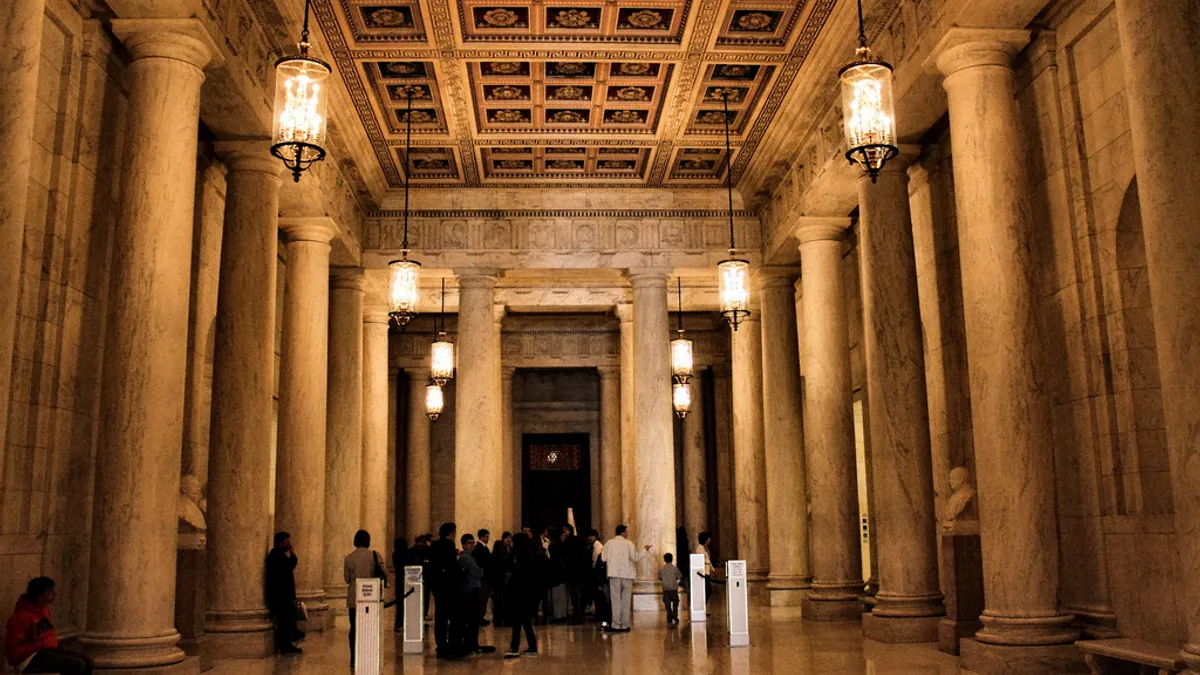Dive Brief:
- The docket for the Supreme Court’s 2015-16 term includes a California lawsuit that raises the question of whether teacher unions can collect fees from teachers who aren’t members for the purposes of collective bargaining.
- The group of 10 California teachers involved opted not to join their local union and said being forced to pay fees for that representation violated their First Amendment rights.
- If the court rules against the unions, it could severely jeopardize the ability of unions to conduct their work and bargain on behalf of nonmembers.
Dive Insight:
The ability of unions to collect fees for nonmembers for services they provide to all rests on a 1977 Supreme Court case, Abood v. Detroit Board of Education, which underlies the entire public-sector union structure. The current court has nibbled at the edges of the ruling, but has so far opted not to overturn public sector union fees entirely.
The votes to maintain the current state of things are far from guaranteed. The unions’ best hope is that Justice Antonin Scalia, who has expressed some limited support for Abood, will side with them. But as Paul D. Clement, a Supreme Court lawyer not involved in the case, told Education Week, "I don't know that that would warm my heart if I were the public-employee unions.”
The court is also set to once again take on affirmative action and race-conscious admissions in higher ed.












